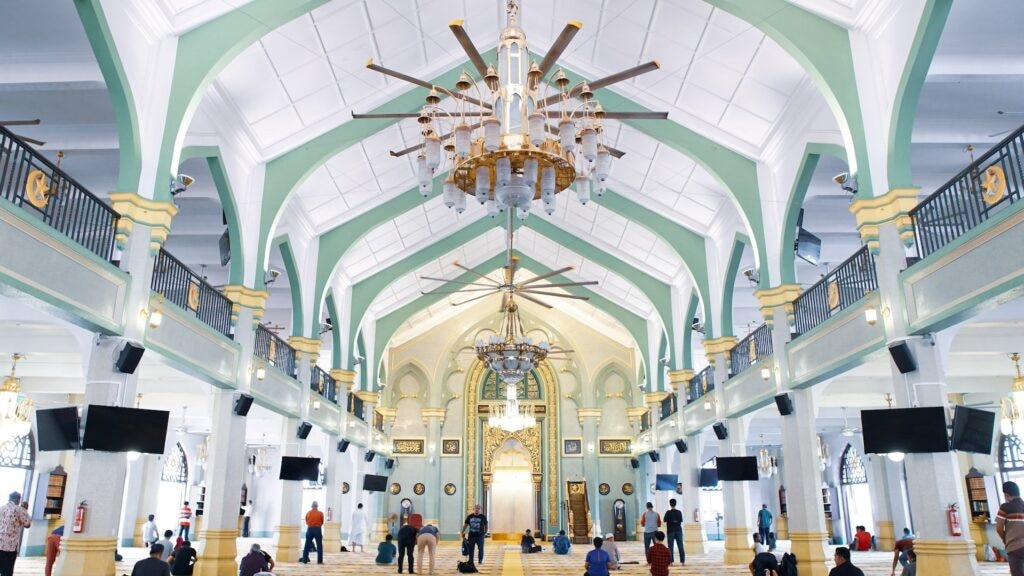Guidance regarding basic Islamic issues – which Hazrat Amirul Momineen, Khalifatul Masih Vaa has given on various occasions in his written correspondence and during MTA programmes – is being officially published below for everyone’s benefit.

Adoption in Islam
A lady from the UK wrote to Hazrat Amirul Momineen, Khalifatul Masih Vaa to seek guidance regarding the adoption of children and the rights and responsibilities of their relatives. Huzoor-e-Anwaraa, in his letter dated 26 September 2021, provided the following guidance to her:
“According to Islamic teachings, adoption of children is allowed, but Allah the Exalted has especially commanded in this regard in the Holy Quran that such children should be addressed by and carry the family names of their real parents alone. (Surah al-Ahzab, Ch.33: V.5-6) Therefore, such children should be informed about their adoption and their real parents at a young age. This is the correct Islamic teaching.
“As far as the Islamic legal right of such children on inheritance etc. is concerned, they are entitled to it only through their real parents i.e. the real parents of such children remain their legal heirs and such children remain the legal heirs of their real parents. Adoption does not affect the mutual legal inheritance rights of these children or their real parents. Nevertheless, if the adoptive parents who raise such children want to give something to these children, they can do so in the form of a gift [hibah] during their lifetime or they can bequeath something to them. However, one is only allowed to bequeath up to a maximum of one-third of one’s total assets. (Sahih al-Bukhari, Kitab al-wasaya, Bab an yatruka warathatu ’aghniya’a khayrun min ’an yatakaffafu n-nas)”
Human milk banks

Someone from Qadian, India, wrote to Hazrat Amirul Momineen, Khalifatul Masih Vaa to seek guidance about milk banks where human milk, donated by mothers, is provided for orphans. He wrote that such an arrangement would lead to the children, who use the facility, becoming foster siblings, without knowing exactly who among them was whose foster sibling. The individual asked whether, in view of this predicament, it was permissible to establish milk banks according to Islam.
Huzoor-e-Anwaraa, in his letter dated 12 October 2021, gave the following reply to this question:
“According to Islamic teachings, children who are suckled by the same mother, establish a mutual foster relationship, due to which such boys and girls cannot marry each other when they grow up. Therefore, an organisation or a government that provides the facility of breastmilk somewhere in response to a need, will have to exercise great care; they will have to keep a record of which child received the breastmilk by which woman, which would seem impossible.
“Therefore, in my view, the establishment of such milk banks is not appropriate as per the Islamic sharia because it can potentially create many types of ambiguities and other issues. Anyway, what is the need for these types of milk banks in this era when scores of different types of formula milk are available on the market? If any institution or government is concerned about the upbringing of orphaned children, they can provide the facility of formula milk for such children.
“Anyway, I am having more research conducted on this issue, but for now, I am of the view that establishing milk banks in this way, as stated in your letter, is not appropriate according to Islamic teachings.”
Later, Huzooraa had research conducted on this issue by Dar-ul-Ifta Rabwah. Then, in his subsequent letter, dated 17 August 2022, Huzooraa gave further guidance to the questioner as follows:
“I have had further research conducted on this issue by Dar-ul-Ifta Rabwah.
“According to the findings of their research, establishing human milk banks and providing milk to children through them is not appropriate as per Islamic teachings. This is so because Islam has established the sanctity of relationships that have been forged on the basis of nursing to such an extent that it has prohibited the intermarriage of these relationships in the same way that it has prohibited the intermarriage of mahram relationships due to descent.
“On the other hand, one cannot know at all about the milk received from these types of milk banks, as to how many women’s and which women’s milk is in a packet of milk. And even if the details of these women were recorded on these packets, the children who drank such milk would become foster siblings of innumerable other children, and it would be seemingly impossible to keep track of them and take precautions with regard to marriages.
“Therefore, if a child needs breast milk, then for this, the method of the foster mother stipulated by Islam should be adopted. However, if this facility is not available somewhere, then instead of making relationships doubtful by taking the trouble to use milk from milk banks, milk from ordinary cows, buffaloes or formula milk should be used, so that the sanctity of relationships established by Islam can be fully respected.”
Methods of performing the witr prayer
A lady from the UK wrote to Hazrat Amirul Momineen, Khalifatul Masih Vaa and asked why we observed the three rak‘ahs of the witr prayer in two parts, i.e. two rak‘ahs and then one rak‘ah. She also asked whether we were permitted to use kitchen utensils, such as frying pans etc. provided at self-catering holiday apartments.
Huzoor-e-Anwaraa, in his letter dated 12 October 2021, provided the following guidance to her:
“Scholars of Hadith and jurisprudence have described various ways of performing witr and they have also given different arguments in favour of their position. The following two are the more well-known ones: one is to offer two rak‘ahs, finish them with salaam, and then offer the third rak‘ah separately. The second method is to offer the three rak‘ahs together in such a way that after the two rak‘ahs one sits down [qa‘dah] for tashahhud, [then gets up to offer the third rak‘ah] and finally ends the prayer with a salaam.
“Hence, responding to a person’s question about how one should perform witr, the Promised Messiahas once said: ‘Either offer two rak‘ahs, say salaam, then offer the third rak‘ah, or offer the three rak‘ahs, while sitting down in the middle for at-tahiyyat, and say salaam once [in the end].’ (Al Hakam, No. 13, Vol. 7, 10 April 1903, p. 14)
“It is mentioned in ahadith that the Holy Prophetsa would usually separate the three rak‘ahs of the witr prayer with a salaam in the middle. Hence, it is narrated by Hazrat Abdullah Bin Umarra:
كَانَ رَسُولُ اللّٰهِ صَلَّى اللّٰهُ عَلَيْهِ وَسَلَّمَ يَفْصِلُ بَيْنَ الْوَتْرِ وَالشَّفْعِ بِتَسْلِيمَةٍ وَيُسْمِعُنَاهَا
“‘Allah’s Messengersa used to separate the witr [uneven rak‘ah] from the shaf‘ [two even rak‘ahs] with a salaam, which he would make us hear.’ (Musnad Ahmad Ibn Hanbal, Musnad Abdullah ibn Umar ibn al-Khattabra, Hadith 5204)
“Likewise, Hazrat Aishara narrates:
كَانَ رَسُولُ اللّٰهِ صَلَّى اللّٰهُ عَلَيْهِ وَسَلَّمَ يُصَلِّي فِي الْحُجْرَةِ وَأَنَا فِي الْبَيْتِ فَيَفْصِلُ بَيْنَ الشَّفْعِ وَالْوَتْرِ بِتَسْلِيمٍ يُسْمِعُنَاهُ
“‘Allah’s Messengersa used to offer salat in the inner chamber, while I used to be in the house. He would separate the witr [uneven rak‘ah] from the shaf‘ [two even rak‘ahs] with a salaam which he would make us hear.’ (Musnad Ahmad Ibn Hanbal, Hadith as-Syedah Aishara, Hadith 23398)
“Someone asked Hazrat Musleh-e-Maudra about how the Promised Messiahas used to offer the witr prayer. The person asked, ‘Did the Promised Messiahas use to say salaam after offering two rak‘ahs of witr prayer [and complete the remaining one rak‘ah thereafter] or would he offer all the three rak‘ahs in one go?’
“Hazrat Musleh-e-Maudra replied:
“‘Usually, [he would say salaam] after offering two.’
“Maulvi Syed Sarwar Shah Sahibra added that, as far as he had heard of narrations from the people familiar with the matter, they had also expressed that he used to say salaam after offering two rak‘ahs and offer the remaining one rak‘ah separately. (Al Fazl, Qadian Dar-ul-Aman, No. 97, Vol. 9, 12 June 1922, p. 7)
“Thus, although Islamic jurists have also declared the method of offering the three units of the witr prayer together — with sitting down [qa‘dah] for tashahhud in the middle and saying one salaam in the end — to be correct and masnun, the general practice of our lord and master, the Holy Prophet Muhammadsa and of his ardent devotee, the Promised Messiahas, was that after offering two rak‘ahs of witr, they would say salaam and then offer the third rak‘ah separately.”
Using kitchen utensils of non-Muslims
“As far as the use of utensils in holiday apartments is concerned, these utensils can be used after washing them thoroughly. There is nothing wrong with that.”
Obligation to marry

A lady from Kuwait wrote to Hazrat Amirul Momineen, Khalifatul Masih Vaa and asked why it was obligatory for Muslims to marry. She asked whether an unmarried person would not go to Heaven despite being very pious.
Huzooraa, in his letter dated 15 October 2021, gave the following reply to this question:
“Marriage is one of Islam’s fundamental commandments for Muslims. Allah the Exalted has commanded in the Holy Quran:
فَانۡكِحُوۡا مَا طَابَ لَكُمۡ مِّنَ النِّسَآءِ مَثۡنٰي وَثُلٰثَ وَرُبٰعَ
“…then marry of women as may be agreeable to you, two, or three, or four… (Surah an-Nisa’, Ch.4: V.4)
Likewise, marrying is the sunnah of the Holy Prophetsa, who said, a true Muslim was one who followed his sunnah. Hence, it is narrated by Hazrat Aishara:
قَالَ رَسُولُ اللّٰهِ صَلَّى اللّٰهُ عَلَيْهِ وَسَلَّمَ النِّكَاحُ مِنْ سُنَّتِي فَمَنْ لَمْ يَعْمَلْ بِسُنَّتِي فَلَيْسَ مِنِّي وَتَزَوَّجُوا فَإِنِّي مُكَاثِرٌ بِكُمْ الْأُمَمَ وَمَنْ كَانَ ذَا طَوْلٍ فَلْيَنْكِحْ وَمَنْ لَمْ يَجِدْ فَعَلَيْهِ بِالصِّيَامِ فَإِنَّ الصَّوْمَ لَهُ وِجَاءٌ۔
“‘Allah’s Messengersa said, ‘Marriage is part of my sunnah, and whoever does not follow my sunnah has nothing to do with me. Get married, for I will take pride in your great numbers before other nations. Whoever has the means, let him get married, and whoever does not, then he should fast, for it will diminish his desire.’’ (Sunan Ibn Majah, Kitab an-nikah, bab ma ja’a fi fadli n-nikah)
“Thus, if a good match becomes available and the individual is kufw [compatible] with you, then you should definitely get married. However, it should not be the case that you marry any disbeliever or atheist, rather, it is important to keep Islamic teachings and administrative guidelines in mind in such matters too.”
Working in the banking sector

A doctor from Egypt wrote to Hazrat Amirul Momineen, Khalifatul Masih Vaa and asked whether [a Muslim] engineer was permitted to work in a bank or in an engineering firm owned by a bank since such employment inadvertently helped the interest and alcohol markets.
Huzoor-e-Anwaraa, in his letter dated 18 October 2021, provided the following guidance on this issue:
“The banking system has become an integral part of almost every worldly business nowadays. And most of the world’s banking systems have some element of interest in them, which then becomes part of those businesses as well. That is why the following statement of the Promised Messiahas, the Hakam ‘Adl of this age, is fundamental to understanding this phenomenon. Huzooras states:
“‘In recent times, most jurisprudential issues in this country have become convoluted. There is one or the other element of interest [riba] involved in every trade. This is why renewed ijtihad is needed in this age.’ (Al-Badr, nos. 41-42, vol. 3, 1-8 November 1904, p. 8)
“Under such circumstances, if a person remains given to a lot of doubt and suspicion, then his life would become unbearable, because some interest money would have been invested somewhere in the companies that do business with the clothes that we wear in our daily lives. Then, with the bread we eat, there will be some involvement of interest money at some stage or another in its business. And if a person wants to abandon all these worldly needs in favour of merely sitting in his house, which is obviously impossible, even then, his house would have been made of bricks, sand and cement and the companies that make these materials also would have dealt with interest or used interest money in their businesses.
“Hence, one should not create unnecessary difficulties for oneself by subjecting such matters to extreme scrutiny and falling into suspicion. It is also mentioned in a hadith as narrated by Hazrat Aishara that:
أَنَّ قَوْمًا قَالُوا يَا رَسُولَ اللّٰهِ إِنَّ قَوْمًا يَأْتُونَنَا بِاللَّحْمِ لَا نَدْرِي أَذَكَرُوا اسْمَ اللّٰهِ عَلَيْهِ أَمْ لَا فَقَالَ رَسُولُ اللّٰهِ صَلَّى اللّٰهُ عَلَيْهِ وَسَلَّمَ سَمُّوا اللّٰهَ عَلَيْهِ وَكُلُوهُ
“‘A group of people said to Allah’s Messengersa, ‘Some people bring us meat and we do not know whether they mention Allah’s name or not (while slaughtering the animal).’ He said, ‘Mention Allah’s name (i.e. recite the basmalah) on (the meat) and eat it.’’ (Sahih al-Bukhari, Kitab al-Buyu‘, bab mun lum yara l-wasawisa wa nahwaha min ash-shubuhat)
“Likewise, the Promised Messiahas was asked whether it was permissible to eat food prepared by Hindus. He stated:
“‘The sharia has made it permissible. The sharia does not insist on such restrictions; rather, it places emphasis on:
قَدۡ اَفۡلَحَ مَنۡ زَكّٰهَا
“‘[He indeed (truly) prospers who purifies it. (Surah al-Shams, Ch.91: V.10)]. The Holy Prophetsa would eat items prepared by Armenians and, in any case, one cannot do without it.’ (Al Hakam, no. 19, vol. 8, 10 June 1904, p. 3)
“During the blessed era of the Promised Messiahas, someone who was employed as a deputy tehsildar [tax officer] in the irrigation department, inquired from Huzooras through a letter whether this type of employment was permissible. Huzooras replied:
“‘At present, all such matters in India fall under compulsion [iztirar]. A tehsildar or naib tehsildar does not make, sell or drink liquor. He is only assigned administrative supervision and is duty-bound as a public servant. In view of the rule of the country and the current situation, this matter is permissible on account of iztirar. Of course, one should keep praying to God Almighty to create even better circumstances for him. The government may have jobs that do not involve such things. Moreover, one should keep seeking forgiveness from God Almighty.’ (Badr, No. 39, Vol. 6, 26 September 1907, p. 6)
“Hazrat Musleh-e-Maudra states with regard to bank employment:
“‘In my opinion, a job that involves actively working toward receiving interest money or encouraging [others to do so], is not permissible. However, employment as an accountant or bookkeeper at such a bank is permissible.’ (Al Fazl, Qadian Dar-ul-Aman, No. 95, Vol. 3, 7 March 1916, p. 9)
“Then, on another occasion, he stated:
“‘A job in which one has to encourage others regarding interest, is not permissible. Clerical and account-keeping tasks as part of a job, are permissible.’ (Al Fazl, Qadian Dar-ul-Aman, No. 113, Vol. 3, 13 May 1916, p. 8)
“Thus, one should act with piety when tending to the various matters and worldly affairs, without giving way to suspicion and doubts. And where there is a direct possibility of committing a prohibited act or the prohibition of something is clearly evident, then it should be avoided at all costs. However, one should not become too given to suspicion and doubt and avoid the use of lawful things without a valid reason.”
(Compiled by Zaheer Ahmad Khan, Head of Records Department, Private Secretariat, London. Translated by Al Hakam.)


jazakumullahu khairan ahsan jaza fidunya wal akhirah for this beautiful compilation.
Jazakallah for all these valuable answers on these kinds of confusing topics. May Allah reward team Alhakam for their efforts.